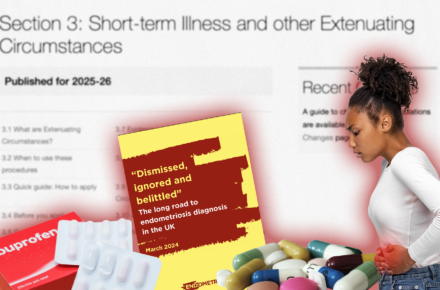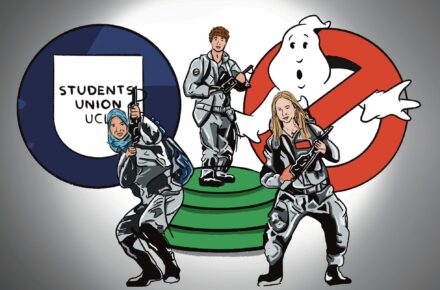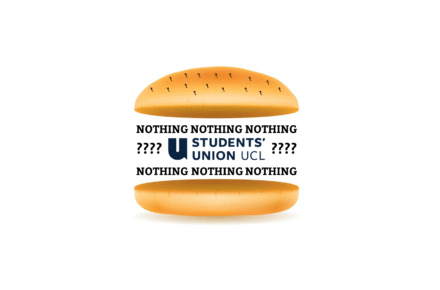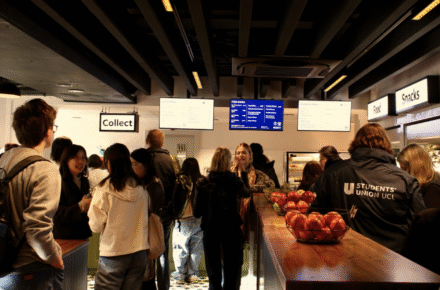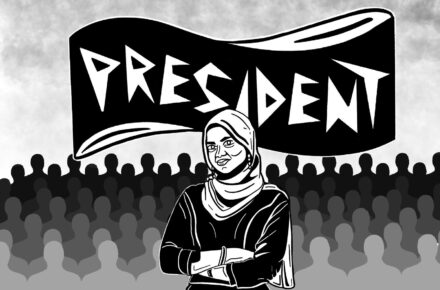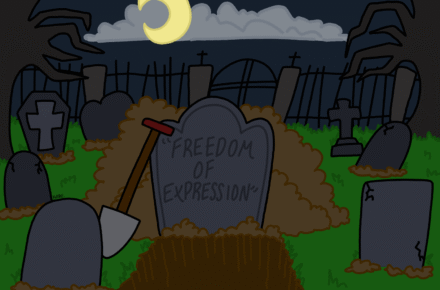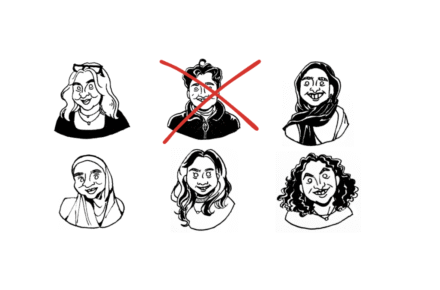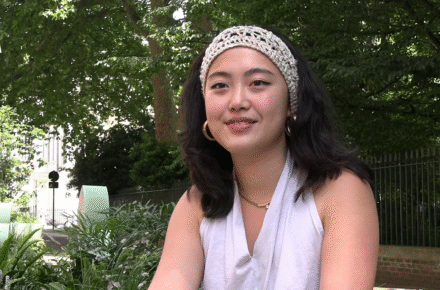On December 1st, thirty-odd students convened in a rented basement room in the Building Centre on Store Street for an open forum with striking staff. In an impassioned speech that was met with enthusiastic cheers and applause, Sean Wallis, UCL’s University & College Union (UCU) President, called for solidarity between the two parties: “we are in a battle for the future of the planet… it’s time to make a difference, it’s time to work together.”
While the conference featured many outspoken student allies well-versed in union politics, including members of Young Labour and the Marxist Society, the level of turnout was feeble. It reflected an increasingly familiar trend of student apathy and disengagement with the staff labour movement.
In the same meeting, one pupil summarised the general confusion by students about the strikes. She said, “I don’t know… what’s happening with the UCU. What exactly is the Students’ Union? I only have limited information; I only read emails to a certain degree.”
Indeed, student participation in SU politics is at a dismal level. This is perhaps most apparent in the fact that many positions in the recent elections were vacant or featured a single candidate. Thirteen student representative posts had no candidates at all, including those for student media and club and society welfare. Such disillusionment reflects a widespread and consequential fact of campus politics: many students simply do not understand how UCL’s Students’ Union (SU) works. This confusion may explain why there was insufficient dissent when the Union voted to oppose the strikes; because students are unaware of how SU decisions are made, they may assume that it automatically always serves their best interest. Further, it is possible that students did not even hear about the vote due to their wholesale disengagement with the Union.
The context of this vote is concerning enough: a rushed meeting that lacked a third of the members of the Union Council and with a six against four consensus opposing the strikes. Johara Meyer, The SU Sustainability Officer, was one of the ten in attendance. She argues that “the only reason why [the vote] was pushed through… was because they said that ‘we have to take a position on this’.”
Besides the questionable basis of the vote, the resulting position opposing the strikes appears to be out of touch; a recent study by the National Union of Students suggests that 73% of pupils backed the action while only 9% opposed the strikes. Although students certainly have a right to oppose the strikes, Meyer argues that decisions of this magnitude should be taken in a democratic manner. Consequently, she backed calls for a referendum, asserting that “this is a decision that the students should make and should not be in the hands of Sabbatical Officers” who “don’t reflect” the needs of the student body.
In spite of the SU’s decision, striking members of UCL-UCU persevered in their hope for student solidarity. Beyond persuading pupils to join the picket line, as well as hosting forums like the one at the Building Centre, a key slogan read ‘Our Working Conditions Are Your Learning Conditions.’ Furthermore, the ‘Defend Education’ march on the final day of action – for now – saw staff and students join arms in solidarity with the cause.
In an interview with The Cheese Grater, Jack Saunders, a UCU Representative for the History Department, said of student solidarity: “I do get the sense that there is a lot of support, [but] it’s never going to be universal, people are always going to have different views.” He proceeded to highlight the importance of the SU’s role, arguing, “The Students’ Union hasn’t been supportive and I encourage students to engage with their Union and think about what they want their Students’ Union politics to be.”
Many students have already demonstrated such engagement and are lobbying for a change in the Union. Some pupils, such as Daria Duda, have emerged as leading representatives of students backing the strikes. In the Building Centre forum, she called for pupils to sign a petition to force the SU to reconsider their position on the strikes. Later that week, speaking to an Anthropology Department ‘teach out’, Duda celebrated the “joyous” news that the petition passed the required threshold.
Other activists, such as Sergio Iglan with the Marxist Society, were optimistic about students’ openness to the cause. He asserted that, “there are some students who you aren’t going to be able to convince but… when you explain to them why we’re here, why we’re doing what we’re doing, people tend to show their solidarity and support teachers.”
Further student support for the movement is evident in the recent elections of Student Trustees – the most senior SU position for current pupils. Of the 21 candidates, only four ran on a pro-strike platform. Their unsubtle but evidently effective slogan “SU Stop Scabbing” led two of them, Meg Day and Jenna Ali, to be elected. In a recent press release, Ali said, “Students voted “SU Stop Scabbing” in a demonstration of support for the UCU strikes as well as disgust for the official position of the SU on strike action.” While her claim accurately reflects the symbolism of the two Trustees’ victory, the “Stop Scabbing” clan does only constitute half of Trustee seats. However, their relative success among the 21 candidates is somewhat promising for the cause, further indicating that it possesses democratic backing.
The efforts of staff to persuade student camaraderie thus appear to be reinforced by the actions of pro-strike students. While the overall support for strikes among UCL students is difficult to gauge without a referendum, the work of outspoken and engaged pupils, including that of newly-elected officials, suggest that there is hope for greater solidarity.
Nevertheless, in light of the failures of the SU to support the strikes and many students’ paralysis in challenging the Union, it appears more important than ever for pupils to understand how the Union works. The following analysis by The Cheese Grater’s Students’ Union correspondent, Samir Ismail, deconstructs the inner workings of the SU and explains the functions of this elusive body.
UCL Students’ Union: Inside Out by Samir Ismail
The Students’ Union exists, self-evidently, to promote student interest, to be our official united voice, and to provide places for pupils to meet for social, cultural, sporting, and recreational activities.
To understand the separate sections of the Union, it is important to demystify the different roles that exist within it.
At the top of the Union apparatus are the Sabbatical Officers or ‘Sabbs’. The six officers are the Activities and Engagement Officer, Education Officer, Equity Officer, Postgraduate Officer, Union Affairs Officer, and the Welfare and Community Officer. The Sabbs are employed full time, and with the support of the full-time Union staff, work on projects in their corresponding departments and regularly meet with senior UCL management.
Working closely with the Sabbatical Officers, we find the four Student Trustees. They exist to be direct representatives of the student body on the Board of Trustees. Any student is eligible for this position. Per the UCLU memorandum and articles of association, there are currently only four Student Trustees even though there is a maximum of six positions. It was in 2015 that the Board voted to decrease the number of Student Trustees, thus reducing direct student representation on the Board.
Next are the Student Officers. There are fifteen Student Officers in total, with varying briefs. Four of them are Minority Officers, each heading up a liberation network vital in ensuring minority protection in the Students’ Union. These networks, namely the Women’s Network, the Black and Minority Ethnic Students’ Network, the LGBT+ Network and the Disabled Students’ Network, are all created so students can self-organise to defend their rights and challenge discrimination. Along with the other eleven officers, they serve on Policy Zones and a select few on the Union Executive. Student Officers are elected alongside the Sabbs in term two.
In addition to Student Officers, there are Student Representatives. These positions exist for faculties, halls, societies, sports, volunteering and welfare. There were approximately sixty-five Student Representatives elected in the recent election but there were some offices that saw no candidates. The Representatives are responsible for promoting the interests of their constituents to the Union and at Policy Zone meetings, as well as being entitled to vote on issues at Policy Zone meetings.
Considering these key stakeholders – The Sabbs, Student Trustees, Student Officers and Student Representatives – we can begin to examine the broad structure of Union politics.
The foundational institution of Union politics is the ‘Policy Zones’. These are run by all 15 Student Officers and the Student Representatives. There are three Policy Zones: Education, Activities, and Welfare and Community. Each Zone brings together Officers and Representatives from their relevant areas to help communicate student issues and make an active effort to innovate new ideas for the Union and improve student life. These Policy Zones also each elect an Officer to sit on the Union Executive.
The Union Executive is the official voice of the student body. It is made up of the six Sabbatical Officers, six Student Officers, generally including the Minority Officers, and three more Student Officers chosen from each Policy Zone. The Union Executive is responsible for setting Union policy and is divided into the same three zones: Education, Activities, and Welfare and Community. A recent example is the controversial decision not to support the UCU strikes. Furthermore, the Executive oversees the implementation of policy, supervises the SU’s democratic processes, ensures Officer accountability, and decides when to put policy to student body vote.
At the apex of the SU, we find the Board of Trustees. The Board of Trustees has 13 members: the six Sabbatical Officers, three External Trustees and four Student Trustees. The Board exists to keep the operations of the Union in check and does so through numerous committees: the Risk and Audit Committee, the Governance Committee, the Finance Committee, and the Remuneration Committee. These committees are appointed at the discretion of the Board of Trustees. Generally, their membership consists of an External Trustee, one or more Sabbatical Officers, Student Trustees and an external advisor where appropriate.
The Board of Trustees has a range of powers to ensure the Union is running within its guidelines. It has the right to override any decision or policy passed by the Students’ Union membership. The governing documents of the Union give caveats to when the Board can do this; however, these caveats are essentially guidelines, and much is left to their discretion. Hence, while the Board usually assumes a backseat role, their authority is boundless, and they can, hypothetically, disregard the will of the student body at large. Additionally, the Board of Trustees selects and employs a Chief Executive who manages day-to-day operations with hundreds of staff and millions of pounds in turnover.
In a quick summary: The ultimate authority is the Board of Trustees, the day-to-day running is left to the Chief Executive alongside the Sabbatical Officers, and the Union Executive exists to set policy for the Union and oversee the Policy Zones.


